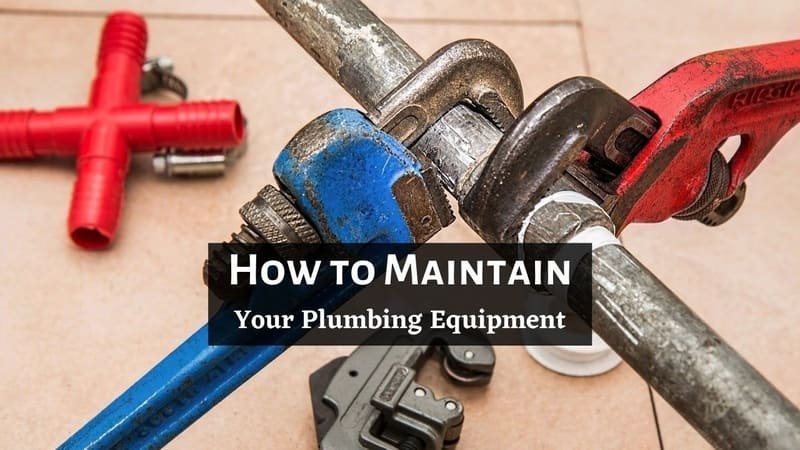Plumbing Equipment comes in many shapes and sizes, and caring for them will only take a few hours out of your week. Maintaining your tool kit is an important part of being a plumber, as it ensures that you have reliable and durable equipment on you at all times.
The last thing you want is for your equipment to fail while you’re trying to fix a plumbing issue. You can’t fix a clogged drain without your drain auger but if the piece of equipment isn’t up to standards, it’ll reflect in the quality of your work.
Plumbing tool maintenance is relatively simple, but it needs to be done regularly. The general rule of thumb is to give your plumbing equipment a thorough check after every job.
Knowing how to take care of your plumbing equipment is the first step to taking care of them. Here is everything you need to know about plumbing tool maintenance:
1. Start with the Toolbox
The toolbox you use will have an important say in how long your equipment stays durable. A cramped toolbox where it’s hard to find anything isn’t just difficult for you while you’re trying to find something necessary but also on your tools.
Some plumbing equipment also has special storage instructions and failing to follow these can result in the tool not working properly.
This is why you need a large toolbox that has special compartments where you can store your gear.
Also, check to see if there are any special instructions for your tools. You’ll need to loosen the spring of your torque wrench. If you’re unsure about how you should store a certain piece of equipment, you can always check the user guide for more information.
When storing the toolbox and your tools, always keep them in a room-temperature environment with low humidity. No direct sunlight should land on the equipment. Be careful of humidity, as this could cause your equipment to develop rust.
2. Inspect Your Tools Thoroughly
During your inspections, you’ll be looking to make sure that there are no outwardly visible issues. This can include chips and cracks or equipment that is broken. If there are any problems, you’ll need to fix or repair them.
Regular inspections keep you aware of the state of your equipment. You also don’t have to worry about your tools falling on you during work.
3. Clean Your Equipment Regularly
Ideally, you should clean your equipment after every job. This may not be possible during busier days, but you can still wipe down your equipment between jobs.
For the most part, using a clean piece of cloth to wipe all your equipment clean will be more than enough. You can mix bleach together with regular detergent in your toilet bowl for your plunger and then dip it in. Swirl it around a few times and flush. Most of the bacteria on your plunger will be cleaned through this process. However, you should always store your plunger away from your plumbing toolkit and other equipment in case any bacteria remains.
Your hand and power tools will need a different cleaning regimen as well. These need to be lubricated regularly to ensure that they work well.
4. Caring for Your Power Tools
Power tools can be battery powered. In these cases, you need to be careful about how you store them. If you don’t need to use a power tool for an extended period of time, then remove the batteries until you need the tool.
Another way to care for your power tool batteries is to charge and then discharge their power at least once in three weeks. If you have spare batteries, store them in a room temperature environment free from sunlight and humidity.
You should also keep an eye on the power tools to see if the cords are fraying. Fraying or exposed wires can cause electrocution and fire related accidents.
5. Caring for Your Hand Tools
The most common signs of disrepair when it comes to hand tools are blunt blades. In this case, the tool is also ineffective. Maintaining your hand tools and sharpening the blades on a regular basis will help them last longer.
You should also be careful of the handles. If they feel wobbly or appear cracked, then they’ll need to be repaired. Another thing to watch out for is whether the sides of the metal head are curling.
The best way to ensure that your plumbing equipment is durable and has a long life is to invest in quality equipment. Whenever you need to buy additions or upgrades to your plumbing toolkit, always invest in high-quality equipment.
As a handyman, you should care about not just equipment but also yourself. Leave your worries about public liability with Plumbers insurance. Protect and maintain your plumbing business the same way you do your equipment with public liability insurance!
Read Also:


